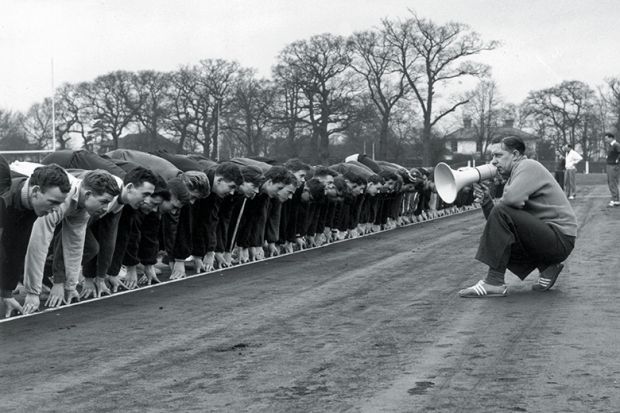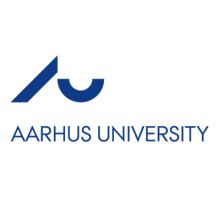Denmark’s top-ranked higher education institution is to shift away from patenting research conducted in partnership with the private sector to pursue an open science model.
Aarhus University’s new initiative, called Open Science, does not allow either the university or the companies involved to patent any discoveries made during the research process and, at the end, the results are disclosed to everyone – even other firms – in what it calls a “patent-free playground”.
The move reflects concerns that universities have moved too far away from their core role in conducting open, fundamental, risk-taking research, and have become too bogged down in the drive to patent research.
For some, this is an activity that is unprofitable and bureaucratic, but others argue that it remains crucial to attracting private research funding.
Kim Daasbjerg, a chemistry professor who instigated and runs the initiative, said that during the past 10 to 15 years, universities had moved towards patenting discoveries and were incentivised to “get as many patents as possible”.
“I don’t think that it’s the role of the university to do that,” he said. “Our competence, our value in society, is fundamental research.”
So far, six large companies, including Lego, have put “cash on the table” to fund research into smart materials, while other smaller firms had promised time and expertise, he said. About 20 researchers are now working as part of the new platform, including six from Aalborg University and three from the University of Copenhagen.
Professor Daasbjerg hopes that other universities and companies will join the platform and that numbers will grow “exponentially”.
One question is whether firms are willing to fund research without an exclusive claim on the results. Professor Daasbjerg insisted that the companies involved were happy spending money on research that would ultimately be available to a rival.
He acknowledged that “maybe a competitor will be a bit stronger” because they can read the research, but he argued that the funder would also get plenty of benefits, too.
A breakthrough at a basic level – a new type of smart material, for example – might be used in completely different products by different firms, Professor Daasbjerg explained, meaning that they were not in direct competition.
Niels Christian Nielsen, Aarhus’ dean of science and technology, acknowledged that rival firms could “always wait” to pounce on the results of research funded by a rival, but argued that latecomers would always be at a disadvantage when it came to commercialisation since, when it came to turning breakthroughs into new products, “time is the most precious thing”, with those already involved in the research more likely to be first to market.
Another concern for Aarhus had been the time spent nailing down exactly what rights and patents would come out of collaborative research, Professor Nielsen added. “We use an enormous amount of time in lawyers’ offices negotiating,” he said, which was “a waste of time that could be more effectively used to build up good relations”.
The new platform does not mark a total shift away from the old model. Firms will still be able to ask Aarhus to conduct joint research with an agreement that they can patent the results. But the emphasis will now be on open, basic collaborative research, Professor Nielsen said.
Universities sometimes use patents and technology licences as a measure of whether they are successfully commercialising their research. But companies tell Aarhus that “the number of licences don’t tell us anything”, Professor Nielsen said. “A good fraction of the numbers that we have collected [about patents] haven’t been useful...it’s the wrong way to measure it.”
There is also concern that patenting costs most universities money, with only a few profiting. An analysis of technology transfer offices at US universities by the Brookings Institution in 2013 concluded that, despite a dramatic rise in the number of such offices since the late 1980s, the top 10 per cent of earners took about three-quarters of the income. Out of 155 offices, 130 were operating at a loss. Professor Daasbjerg said that patenting was often “bad business”.
Adam Stoten, chief operating officer at Oxford University Innovation, which helps academics with patents and intellectual property, acknowledged that “many technology transfer offices are not profitable”.
But their true mission was to “demonstrate impact” for the university, he said, arguing that “one has to consider the situation a bit more holistically”.
Dr Stoten added that if research could yield “a product, or part of a product, most companies are going to want to have some [IP] protection on that”.
“I don’t see there being a broad spectrum shift to open science,” Dr Stoten said.
Bruno Reynolds, a senior consultant at Oxentia, Oxford’s management consultancy company, also warned that “a policy of not filing any patent applications will not alleviate a university of legal negotiations when entering into collaborations with industry partners”.
POSTSCRIPT:
Print headline: Danes take steps towards ‘patent-free playground’
Register to continue
Why register?
- Registration is free and only takes a moment
- Once registered, you can read 3 articles a month
- Sign up for our newsletter
Subscribe
Or subscribe for unlimited access to:
- Unlimited access to news, views, insights & reviews
- Digital editions
- Digital access to THE’s university and college rankings analysis
Already registered or a current subscriber? Login









